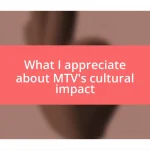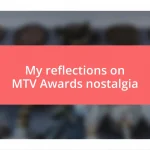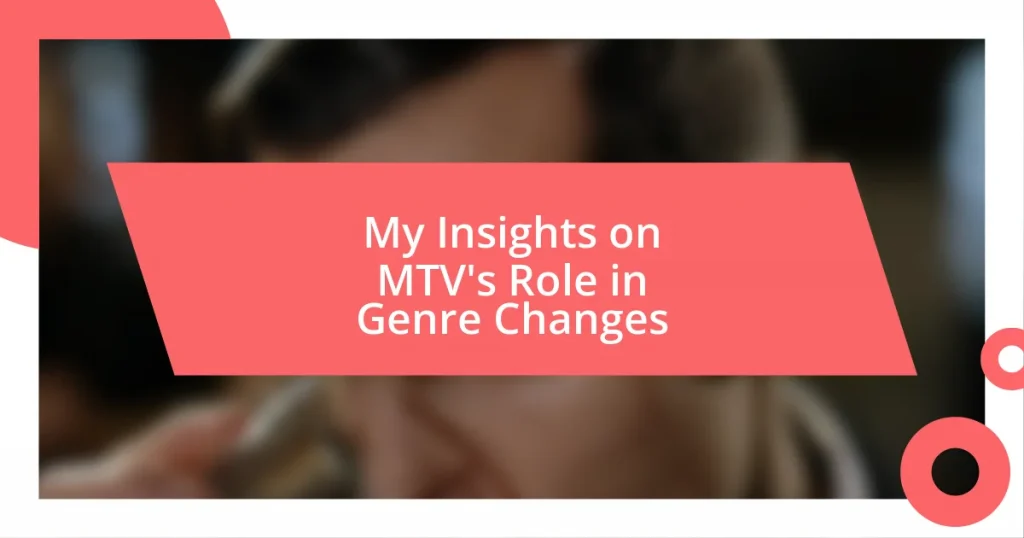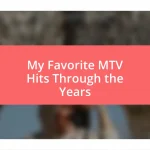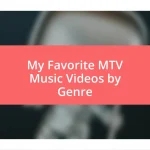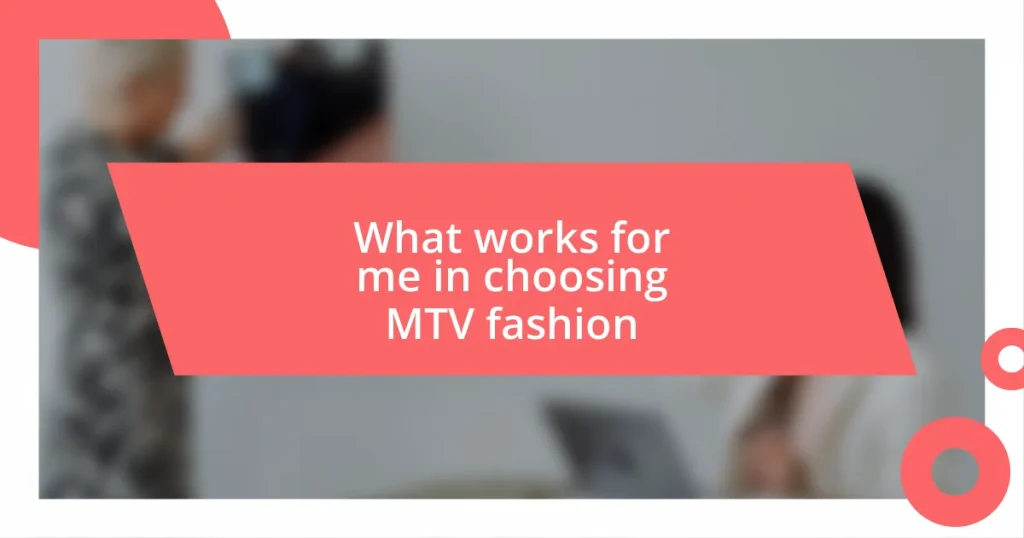Key takeaways:
- MTV launched in 1981, initially focusing on rock and pop music videos, significantly shaping music consumption and popular culture.
- The introduction of “Yo! MTV Raps” in 1983 diversified the network’s programming, bringing hip-hop to mainstream audiences.
- Future trends may include interactive experiences and a broader representation of musical genres, influenced by social media and technology.

Understanding MTV’s Cultural Influence
MTV’s cultural influence is undeniable, and I can still remember the excitement of gathering with friends to watch the latest music video premieres; it felt like a communal celebration. We weren’t just passive viewers; we were part of a vibrant movement that shaped fashion, language, and even social attitudes. Isn’t it fascinating how a music network could spark trends that transcended music itself?
As I reflect on my teenage years, I recall how MTV was a gateway to discovering artists from diverse backgrounds and genres, broadening my musical horizons. I often wonder how many people found their voices and identities through the eclectic mix of videos showcasing everything from hip-hop to alternative rock. It’s a testament to MTV’s power—creating a melting pot of cultures that influenced a generation’s understanding of art and life.
Navigating through the ever-changing landscape of music videos, I’ve seen how MTV pushed boundaries and challenged norms. The raw emotions portrayed in video narratives often left a lasting impact on me. Did you ever find yourself resonating deeply with a song’s message, wishing it could capture exactly what you felt inside? MTV had the unique ability to make those feelings tangible and relatable, connecting us all in unexpected ways.

Historical Overview of MTV’s Programming
MTV began as a revolutionary concept when it launched in 1981, showcasing music videos around the clock. Initially, its programming consisted primarily of rock and pop videos, which were a fresh way to experience music. I still remember the anticipation I felt when my favorite artists’ new videos would air, transforming the way I connected with their music.
- 1981: MTV launches, primarily featuring rock and pop music videos.
- 1983: The debut of “Yo! MTV Raps” introduces hip-hop culture to mainstream audiences.
- 1992: “The Real World” begins, marking MTV’s shift toward reality programming.
- 2000s: Expansion into various genres, including alternative rock, pop-punk, and teen dramas.
- Present: MTV’s current focus on reality and lifestyle content, shifting away from music-centric programming.
Reflecting on that initial era, I can’t help but admire how MTV cultivated an artistic hub that made music videos iconic. As a teenager, channel surfing to find a video that echoed my deepest feelings was like discovering a new world. The shift from pure music content to incorporating reality shows felt like a loss at times, but it also demonstrated MTV’s ability to adapt, capturing the cultural zeitgeist.

Future Trends Influenced by MTV
As I look ahead, I can’t help but think about how MTV will continue to shape music consumption and culture through technology. With the rise of streaming platforms, MTV’s influence is likely to merge with new formats, such as virtual reality concerts and interactive music experiences. Isn’t it exciting to imagine attending a live-streamed event where you can engage with performers and fellow fans as if you were all in the same room?
The way we discover music is evolving too. I’ve noticed that social media now plays a significant role in promoting new artists, reminiscent of how MTV showcased emerging talent back in the day. I often find myself discovering songs through TikTok challenges or Instagram reels—just like when I used to hurry home to catch a new song on MTV. This shift opens up opportunities for artists from various genres to connect with broader audiences, fostering a diverse musical landscape that’s truly reflective of our times.
Looking forward, I see MTV possibly embracing a more inclusive representation of genres beyond what we traditionally expect. In my view, we could witness a resurgence of niche genres as they find their place in popular culture through creative visuals and storytelling on MTV. Don’t you think it’s incredible how the cycles of influence can lead to unexpected revivals of artistry? The potential for this next wave excites me, reminding me how music has always been a living, breathing entity—forever evolving with us.



